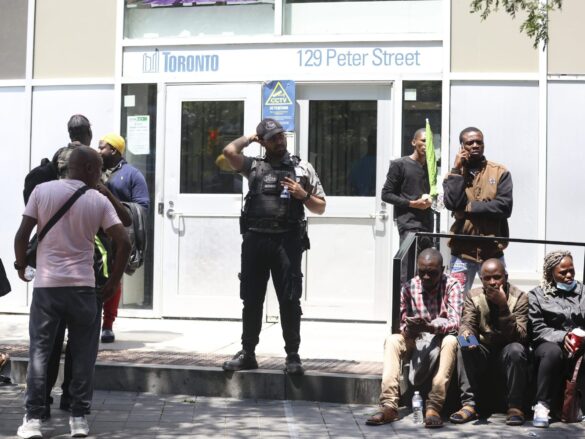The City of Toronto has announced plans to develop a new homeless shelter specifically mandated to serve Black Torontonians, marking a significant advancement in culturally responsive support within the city’s homelessness framework. This initiative is part of the Homelessness Services Capital Infrastructure Strategy (HSCIS), a ten-year plan adopted in November 2023 aimed at transforming shelter services to better address the unique challenges faced by diverse populations, particularly marginalized Black communities. The shelter will be operated by Black-led organizations to ensure services are culturally appropriate, addressing systemic barriers and anti-Black racism experienced by individuals facing homelessness in Toronto.
Purpose and Objectives of the Shelter
The new homeless shelter is designed to directly confront the systemic barriers that Black residents face within the homelessness support system in Toronto. Research and community consultations have highlighted that Black Torontonians experience disproportionate rates of homelessness and often encounter racial discrimination in accessing services. By creating a shelter specifically mandated to serve this population, the city aims to provide culturally sensitive care that acknowledges and addresses these inequities.
Operational Structure and Community Involvement
To ensure that the shelter’s operations are aligned with the needs of Black residents, the City of Toronto has committed to partnering with Black-led organizations. These groups will be responsible for managing day-to-day operations, designing service delivery models, and engaging with clients. This approach is intended to foster trust and accountability, while promoting empowerment within the community through leadership and employment opportunities.
Context Within the HSCIS Framework
The shelter is part of the broader Homelessness Services Capital Infrastructure Strategy (HSCIS), a comprehensive ten-year framework adopted in November 2023 that guides investments in shelter infrastructure and service improvement across Toronto. HSCIS emphasizes transformative strategies to address systemic racism and service barriers affecting different marginalized groups. This Black-mandated shelter exemplifies the strategy’s focus on culturally relevant supports and equity-driven resource allocation.
Projected Impact and Future Plans
City officials and community advocates anticipate that the shelter will improve access to safe, culturally affirming spaces for Black individuals experiencing homelessness. It is expected to reduce experiences of discrimination within the shelter system, improve client outcomes through tailored support services, and provide a model that could inspire similar initiatives for other marginalized populations. Ongoing assessments and community feedback will guide the shelter’s development and operational adjustments to maximize its effectiveness.
Stakeholder Reactions
Community leaders and advocacy groups have expressed support for the initiative, emphasizing its potential to meaningfully address systemic racism in homelessness services. However, some have called for sustained funding and broader systemic reforms to complement the shelter, ensuring that long-term solutions to racial disparities in housing and homelessness are achieved.
The City of Toronto’s plan to develop a homeless shelter specifically mandated for Black Torontonians represents a pivotal step toward addressing systemic inequities within the city’s homelessness support system. By partnering with Black-led organizations and embedding the initiative within the broader Homelessness Services Capital Infrastructure Strategy, the city aims to provide culturally appropriate, empowering, and effective assistance to a population disproportionately affected by homelessness and discrimination. While the shelter is expected to enhance access to safe and affirming services, ongoing community engagement and sustained systemic reforms will be essential to ensure lasting impact and equitable housing outcomes for Black residents in Toronto.

